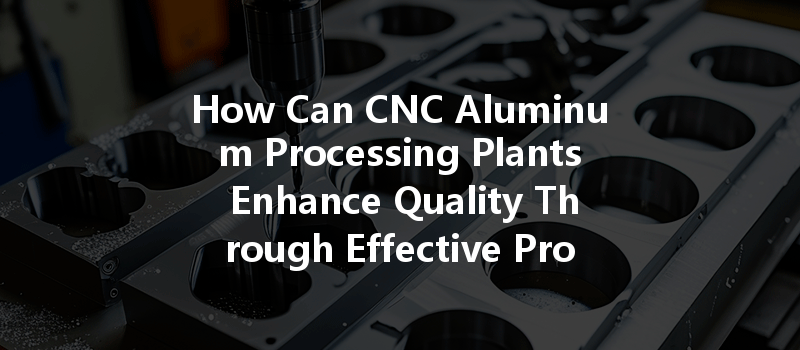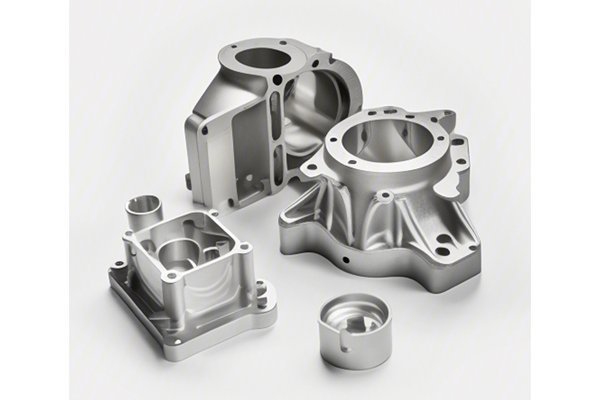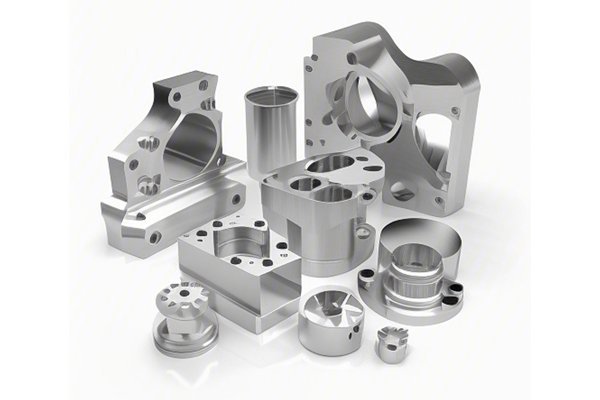In today’s rapidly evolving manufacturing landscape, competitiveness is determined more than ever by a company’s capacity to deliver high-quality products quickly and efficiently. Particularly in the field of CNC (Computer Numerical Control) aluminum machining, the pursuit of quality is paramount. For businesses like YL Machining, which specialize in CNC aluminum processing, understanding and implementing process improvements can lead to significant enhancements in product quality, increased customer satisfaction, and ultimately, a stronger bottom line. This blog will delve into effective strategies that CNC aluminum processing plants can adopt to elevate their quality standards, exploring themes such as advanced technologies, workforce training, process optimization, and real-time monitoring.
The Importance of Quality in CNC Aluminum Machining
Quality in CNC aluminum machining encompasses several aspects, including dimensional accuracy, surface finish, and material integrity. In industries such as aerospace, automotive, and medical, even the slightest deviation can lead to catastrophic failures or economic repercussions. Therefore, establishing a robust quality assurance framework is essential.
According to a report by the American Society for Quality (ASQ), organizations that prioritize quality improvements experience 45% higher productivity rates than their counterparts. In CNC machining, this could translate into tighter tolerances, reliable surface finishes, and reduced scrap rates—all of which contribute to customer satisfaction and long-term partnerships.
Advanced Technologies in CNC Machining
One of the most effective ways CNC aluminum processing plants can enhance quality is by investing in advanced machining technologies. Here are some key technologies to consider:
High-speed machining is critical in achieving superior surface finishes and reduced production times. HSM employs faster spindle speeds and feeds, significantly lowering the time it takes to complete machining operations. According to research by the Massachusetts Institute of Technology (MIT), HSM can increase machining productivity by up to 50% while improving surface finish quality.
Combining CNC machining with additive manufacturing (3D printing) allows for more complex geometries that traditional machining cannot achieve. This integration enables the creation of lightweight, intricate parts that meet stringent structural requirements while reducing material waste.
Implementing automation and robotics can significantly enhance quality. Automated systems ensure consistent feed rates, tool changes, and operational oversight, all of which decrease the risk of human error. With robotics, CNC machines can work around the clock, leading to increased efficiency and quality. As reported by McKinsey, manufacturers that adopt automation experience a 10-20% increase in product quality.
CAD and CAM software streamline the design and programming processes, allowing for intricate design modifications to be replicated with precision. Utilizing simulation tools to analyze and visualize machining operations can expose potential design flaws before actual manufacturing begins. According to TechRepublic, companies that leverage CAD/CAM can reduce design errors by 20-30%, limiting costly reworks.
Workforce Training and Continuous Learning
In the realm of CNC machining, even the most advanced technology can falter without a skilled workforce. Continuous training and development programs are paramount for ensuring that operators and engineers are well-versed in modern machining practices.
Offering regular training sessions on new technologies and methodologies helps operators adapt to changing demands. A study from the National Center for Biotechnology Information (NCBI) found that companies investing in employee training enjoy a 24% increase in productivity, emphasizing the importance of a well-trained workforce.
Cross-training employees to handle multiple machines or processes encourages flexibility in operation and better problem-solving. This approach can lead to improved collaboration and enhanced ownership of tasks, ultimately boosting overall product quality.
Incorporating lean manufacturing principles can eliminate waste, streamline operations, and optimize productivity. By fostering a culture of continuous improvement, employees are encouraged to identify areas for enhancement, which invariably leads to higher quality outputs.
Process Optimization
Process optimization is a continuous method for improving manufacturing processes, aiming to increase efficiency and reduce waste without sacrificing quality.

Developing and enforcing clearly defined SOPs ensures consistency in machining practices. By encouraging operators to follow established methods, CNC aluminum processing plants can minimize variability, providing a more predictable product quality.
Implementing SPC techniques enables manufacturers to monitor and control production processes through statistical methods. By analyzing production data in real-time, CNC machining facilities can immediately detect deviations and take corrective actions before defects occur.
In environments that produce complex aluminum components, employing RCA techniques when defects are found is crucial for continuous improvement. By identifying and addressing the underlying causes of quality failures, CNC aluminum processing plants can reduce the likelihood of recurrence.
Real-Time Monitoring and Data Analytics
In the digital age, real-time monitoring and data analytics are essential for maximizing quality. By collecting data throughout the manufacturing process, CNC aluminum machining facilities can gain valuable insights.
IoT devices enable machines to communicate and share real-time data related to operational performance. By monitoring machining parameters such as temperature, vibration, and tool wear, manufacturers can schedule maintenance proactively, avoiding downtimes that compromise quality.
Utilizing predictive analytics helps CNC aluminum processing plants identify potential issues before they impact product quality. By evaluating historical data, manufacturers can anticipate trends and make informed decisions regarding process improvements.
Establishing clear quality metrics and Key Performance Indicators (KPIs) enables CNC machining plants to evaluate their operational performance regularly. Metrics such as First Pass Yield (FPY) and Overall Equipment Effectiveness (OEE) provide insights into the efficiency of processes, prompting data-driven decisions for enhancements.
The Role of Material Quality in Process Improvement
Material quality significantly impacts the overall quality of machined parts. Establishing robust relationships with reliable suppliers is crucial.
CNC aluminum processing plants should prioritize high-grade aluminum alloys, as they possess properties that enhance machinability and part performance. This selection process is critical, as subpar materials can lead to increased scrap rates and compromised part integrity.
Regular audits of suppliers ensure that the materials delivered meet industry standards. Establishing quality checklists and evaluation metrics helps manufacturing organizations maintain strong relationships with suppliers, ensuring they consistently provide high-quality materials.
In conclusion, enhancing the quality of CNC aluminum processing is a multifaceted endeavor that requires a commitment to adopting advanced technologies, refining workforce skills, optimizing processes, and utilizing data-driven insights. Companies like YL Machining that prioritize these elements will not only improve their quality standards but also gain a competitive edge in the increasingly demanding manufacturing market.
As the CNC machining industry continues to innovate, companies must remain agile in their approach to quality assurance, fostering a culture of continuous improvement and adaptation. By doing so, CNC aluminum processing plants can achieve remarkable quality improvements, ultimately leading to greater client satisfaction and sustained growth.
—
This concludes our exploration of how CNC aluminum processing plants can enhance product quality through effective process improvements. It’s imperative for manufacturers to embrace these strategies to thrive in an ever-evolving landscape. For further insights and guidance, feel free to reach out to YL Machining. Your journey towards superior quality begins today!






